PRK Eye Surgery in Iran
PRK (acronym for photorefractive keratectomy) is an outpatient surgical procedure to correct hyperopia (farsightedness), myopia (nearsightedness), and astigmatism. This method is one of the most appropriate and fastest ways to correct eye refractive errors (a way to remove eyeglasses and contact lenses). If you are tired of wearing glasses or eye contact, PRK eye surgery in Iran could be a good solution!
When it comes to eye surgeries and treatments, Iran has much to say in the region. Modern hospitals and facilities in various cities, including Tehran, Shiraz, and Mashhad, proficient world-class ophthalmologists, and budget-friendly eye treatment services have made Iran a medical tourism destination for eye treatments. Although there are more modern eye laser treatment methods, such as LASIK and LASEK, PRK is still used by eye specialists in Iran due to its advantages.
Age Limit for PRK Surgery: You Should be older than 18 years.
Our dedicated professional team at Iran Medical Tours can assist you with high-quality PRK eye surgery in Iran at a competitive price. Contact us for a FREE consultation!
PRK Surgical Procedure
PRK surgery is an outpatient procedure to correct mild to severe myopia, mild to moderate hyperopia, and astigmatism.
Through the procedure, the eye specialist removes a thin layer of the cornea’s surface (the epithelium) and then reshapes the cornea, all with an excimer laser, to improve the light entrance into the eye and its focus on the retina. The eye is numbed with anesthetic drops and the patient will not feel any pain. After the surgery, a temporary contact lens is put into the eye for healing and patient comfort.
PRK or LASIK?
Both treatments are laser eye treatment methods to modify the cornea to improve a person’s vision. LASIK (Laser-assisted in situ Keratomileusis) is a newer technique where the doctor creates a small flap in the cornea with a blade to reshape the layer beneath (stroma) with a laser and then puts it back in place. In PRK, the surgeon permanently removes a thin layer of the cornea’s surface and then reshapes the underlying layers to correct the imperfection with a laser.
Because in PRK surgery no corneal flap is created, it is recommended for patients with thin cornea or for people engaged in activities that put them at risk for eye injuries (and potentially, corneal flap dislocations) after surgery.
Both procedures provide good results, but PRK recovery time is a bit longer and the final result would be seen about 6 months after the surgery.
Duration of Your Stay in Iran: 1 week
PRK Cost in Iran
The average cost of PRK surgery in Iran starts from $1200 for both eyes, which is much more reasonable than in other countries.
Feel free to contact us for more information on PRK eye surgery in Iran.
Note:
Before surgery, be sure to tell your ophthalmologist about your medical history and current medications.
PRK Pre-Operative Preparation
-
Wash your eyelids and eyelashes the night before surgery.
-
Do not wear makeup 48 hours before surgery.
-
Wear light and comfortable clothing on the day of surgery.
-
Do not wear perfume or cologne on the day of surgery.
-
Do not wear contact lenses 48 hours before surgery.
-
If you feel anxious, take a sedative before surgery.
PRK Post-Operative Care
– Your first post-operative visit should be scheduled 24 hours after surgery.
– You should see your ophthalmologist at regular intervals for the first six months.
– At your first post-operative visit, your surgeon will test your vision, and examine your eyes.
– Avoid wearing contact lenses for at least the first three months.
– Avoid wearing eye makeup and applying lotions or creams around your eyes for at least the first three days after the surgery or till your surgeon permits you.
– Avoid certain contact sports, such as boxing, football, karate, etc. for at least 10 weeks.
– Avoid rubbing and scratching your eyes in the first few weeks after surgery.
– In the first few months after surgery, you may experience minor fluctuations in your quality of vision. Complete recovery and stabilizing your vision may take 3-6 months, during this period you may also experience some complications such as night driving difficulties, and seeing halos or glare in your field of vision.
– If further correction or enhancement is necessary, you should wait until your eye measurements are consistent for two consecutive visits at least 3 months apart before re-operation.
Who Are NOT Good Candidates for PRK Surgery
-
People who are younger than 18.
-
People whose refractive errors have changed for at least 12 months before surgery.
-
People who have unrealistic expectations about surgical outcomes.
-
People with uncontrolled diabetes
-
People with connective tissue disorders
-
People with a history of corneal herpes simplex
-
People with Intraocular inflammation
-
People who are taking Isotretinoin capsules (Roaccutane)
-
People with glaucoma or cataract
-
Pregnant or breastfeeding women
